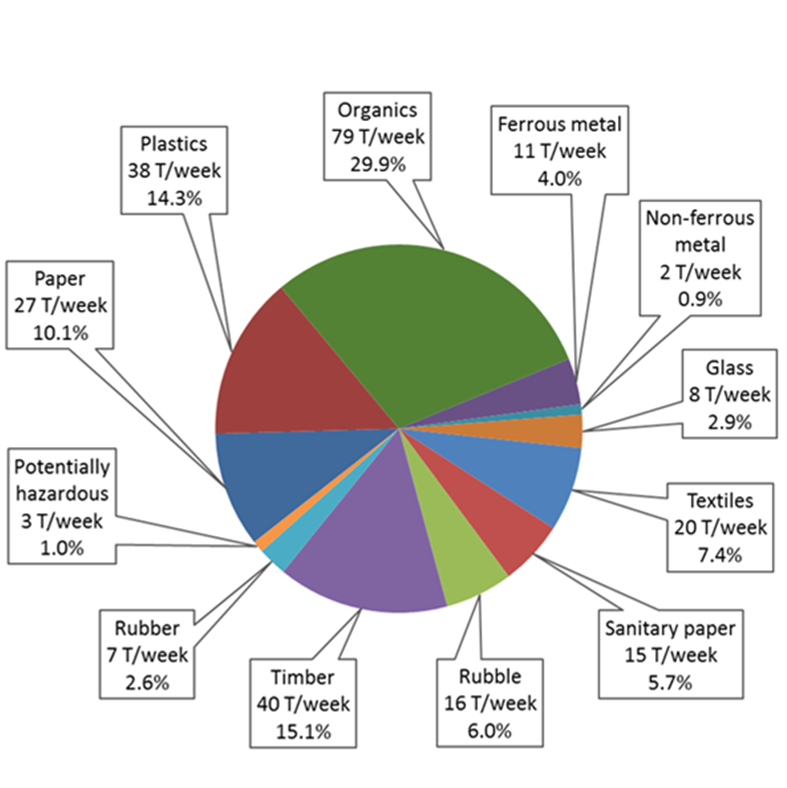The process of sampling a city’s waste is not only dirty work, it requires careful planning and attention to detail.
Councils are obliged to have waste minimisation plans in place. And, as a way of monitoring the effectiveness of their recycling systems – regular (five-yearly) audits are required to try to quantify the amount of solid waste (still) going to landfill from kerbside collections and transfer stations.
National protocols for audit and analysis are provided by the Ministry for the Environment. Working with our northern colleagues at Eunomia Consulting and Waste Not Consulting, Whirika provides continuity of data collection and a robust sample size, with our trained and experience professionals.

The waste from every car, trailor, and truck-load going into the tranfer station pit is surveyed throughout a day. For safety reasons, visual estimates of the weight of every material type from each load are recorded as they are unloaded, and are matched and callorbrated with the weigh-in station records. This is a complicated survey requiring at least two years of training and experience.
For kerbside waste sampling – 300 bins from high, medium and low income areas are collected early morning before the rubbish trucks arrive, and analysed. Public recycling bins are also sampled for contamination, which leads to dumping of otherwise recyclable material.
Whirika provides this service to South Island councils, thanks to a partnership with Waste Not Consulting for training and support based on 35 years of experience in measuring and reducing waste.
